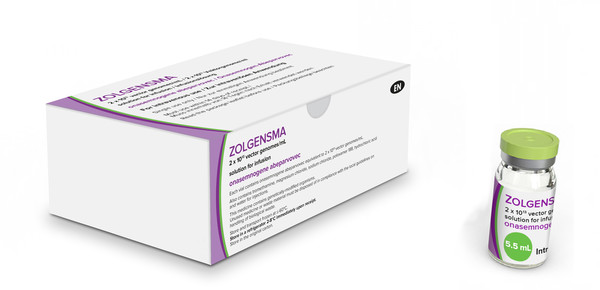A joint research team has released a short-term clinical result confirming the efficacy of Novartis' gene therapy Zolgensma (ingredient: onasemnogene abeparvovec) in treating Korean patients with spinal muscular atrophy (SMA).

The real-world evidence (RWE) study, published in the online edition of Brain & Development on Jan. 12, confirmed the treatment efficacy and safety on Korean SMA patients who received Zolgensma through a managed-access program conducted by its developer Novartis.
It is the first data to confirm the therapeutic effect of Zolgensma in Korean patients.
The research team conducted the trial on six patients. All patients were younger than two years of age, with five being SMA type 1 patient and one with SMA type 2. The patients' age varied from seven to 24.5 months when the researchers administered Zolgensma. All patients had received four to five treatments with the existing treatment Spinraza.
As a result, all six patients’ exercise performance improved during the follow-up period of five to 17 months after administration.
The team of 11 researchers was led by Professors Chae Jong-hee at Seoul National University Hospital, Lee Yun-jeong at Kyungpook National University Hospital, and Kong Ju-hyun at Pusan National University Yangsan Hospital.
All six patients showed increases in three primary systems that evaluate SMA patients’ exercise development indicators -- the Children's Hospital of Philadelphia Infant Test of Neuromuscular Disorders (CHOP INTEND), Hammersmith Infant Neuromuscular Test (HINE), and Hammersmith Functional Motor Scale Expanded (HFMSE).
In one patient, the CHOP INTEND score increased from 31 to 62 after treatment. Another patient, who required a ventilator for 16 hours a day, reduced his ventilator time to eight hours of sleep after six months of the administration.
No patients died during the observation period, and no cases required permanent breathing assistance.
The researchers also confirmed the safety of the treatment.
While the liver and mononuclear counts tended to increase within two weeks of treatment, they returned to normal after a similar period. Leukocyte and neutrophil counts also temporarily decreased after the Zolgensma administration.
Besides, adverse reactions in blood tests and liver function tests went back to normal within two to three months of the administration. The severity of adverse reactions was different for each patient, and there were no significant side effects or complications.
"This data is the first to confirm the efficacy and safety of Zolgensma in Korean SMA patients under the age of two whether or not they received the existing treatment," said Cho Yeon-jin, head of Novartis Korea’s Ophthalmology and Zolgensma business unit. "Notably, most of the patients were receiving the existing treatment, but the researchers observed the development of motor function that had not been seen before the subjects received Zolgensma treatment."
Stressing that Zolgensma is the first gene replacement treatment that can solve the root cause of SMA with once-in-a-lifetime administration, Cho said Novartis Korea would do its best to receive reimbursement of the drug to help patients needing it.

